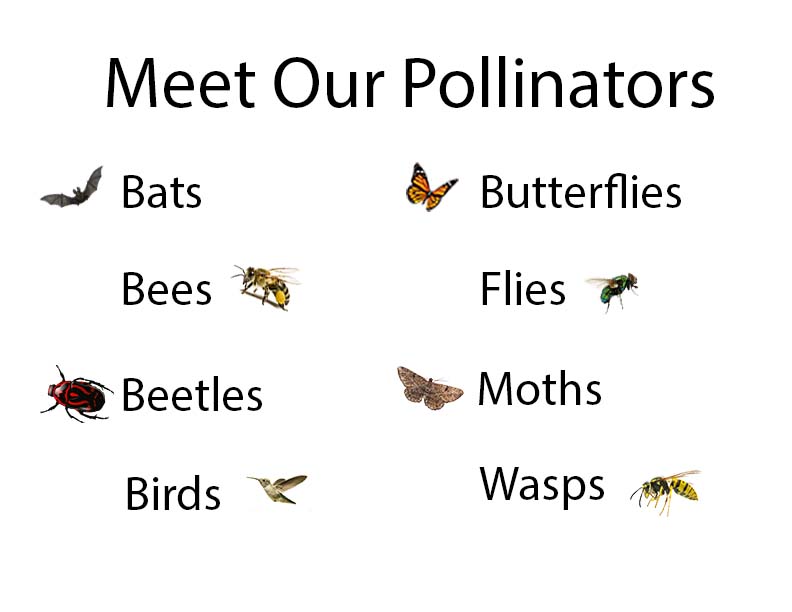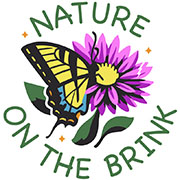
Every ecosystem on earth depends on pollinators to ensure life on earth continues. Pollinators keep plants and humans alive. Their contributions include roles in ecosystems, agriculture, and biodiversity.
There are eight main pollinators: bats, bees, beetles, birds, butterflies, flies, moths, and wasps. These pollinators have two main characteristics which enable them to pollinate plants. Can you guess what these characteristics are? The first is wings for flying. The second is fur or feathers for the pollen to stick to. You may be thinking butterflies and moths aren’t furry! But if you look at their wings under a microscope, they are made up of furry scales so small they can’t be seen with the naked eye. Under a microscope you can see the teeny-tiny scales and the furriness of those scales where the pollen sticks.
Other pollinators work in ways you may not realize. Bats not only help control the mosquito population, but they also pollinate bananas. Without them, we would not have bananas. Those pesky flies are crucial for the pollination of onions. And beetles pollinate magnolia blooms. In fact, there are over 300,000 species of beetles worldwide! Beetles are the oldest surviving species of pollinators and have been around since the dinosaurs.
Fruits, vegetables, seeds, nuts, and flower agriculture are dependent on pollinators: 75% of flowering plants rely on pollination, and 35% of the world’s crops are a direct result of pollinators’ work.
Worldwide, crop production depends on pollinators, and crops with natural pollination are higher quality. The global economic impact of pollinators is estimated to be roughly $235 billion in agricultural output. Farmers rely on pollinators so much for improved harvests and profits that many industrial size farms in the Midwest rent tractor trailers of bees for their crops. For many years, almond farmers have consistently rented bees to ensure successful almond production.
While current environmental challenges threaten food production, pollinator-supported crops tend to be more resilient. Therefore, farms practicing pollinator-friendly operations become more sustainable and adaptable for the future.
Pollinators are critical to maintain plant populations supporting diverse ecosystems. They aid in reproduction for wildflowers and plants, providing habitat and food for other species.
